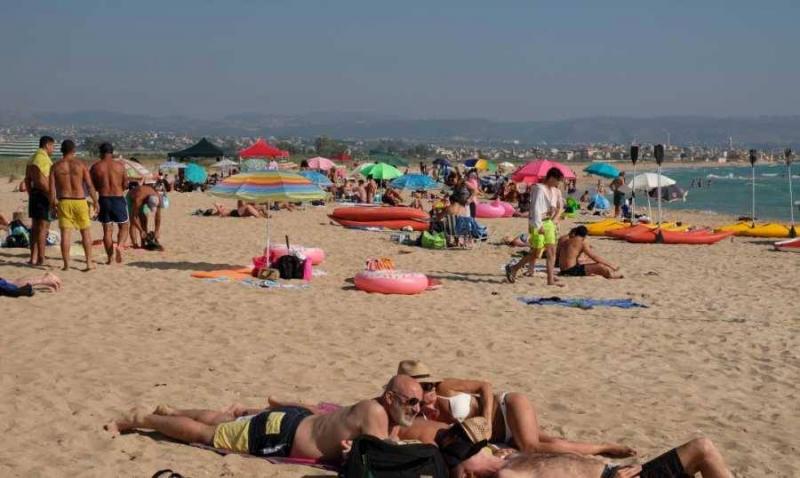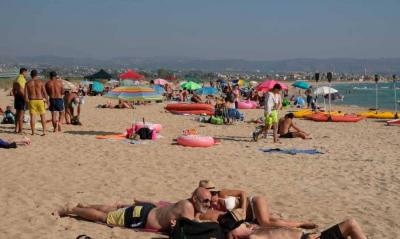As summer approaches, Lebanese citizens, especially those with medium incomes, are shocked by the increased entrance fees to pools and water parks, as tourist resorts have set their prices for this season. A family of four must pay no less than 1.6 million Lebanese pounds to visit the beach, roughly equivalent to a month's salary for a large segment of employees in Lebanon. This year's resort prices have doubled compared to last year, with some establishments setting their prices in dollars, prompting many commenters on social media to compare the prices with neighboring countries, revealing that a trip to Turkish beaches could seem cheaper than vacationing in Lebanon.
With the hope of reviving the stagnant economy and while waiting for the expatriates who have booked tickets to return to Lebanon and spend the summer with their families, bringing what they could in dollars, there is a need to consider the entrance fees to pools and coastal resorts and whether they will be affordable for residents who earn their salaries in Lebanese pounds or for expatriates coming from abroad.
In a survey by "Sky News Arabia" on some pools, the disparity in entrance fees between regular pools and tourist resorts was evident. The entrance ticket price for a popular pool in Beirut reached 400,000 pounds during the weekend for all ages, and 200,000 for domestic workers.
A manager of a pool in the Damour area south of the capital stated, "Before the economic crisis, entrance fees to pools in Lebanon ranged from 20,000 to 60,000 pounds, the latter being for pools that were considered expensive compared to others. Today, due to the economic collapse, pool owners have had to raise prices to astronomical levels, with some charging entry fees in dollars to avoid losses from currency fluctuations."
On the other hand, the fees for some pools surpassed 10 dollars (over 300,000 pounds, nearly half the minimum wage). Edmond, who works in tourism along the coast of Jounieh, said, "Tourism is the only hope for Lebanese to bring dollars into the country," adding that workers in this sector have high hopes for the summer season, which may be threatened due to diminishing purchasing power and rising prices.
Ghassan, a pool owner north of Beirut, noted, "The cost of maintenance materials has risen more than eleven times compared to before; even the chlorine we use to sanitize the pool water is now bought for 2.6 million pounds, after being 150,000." He explained that "employee salaries and transportation allowances have increased due to the current conditions, not to mention potential repairs needed for the air conditioning units that require significant expenses."
Ghassan also stated, "We pay 450,000 dollars in rent for the land we operate, and we only operate for a few days throughout the year, incurring about 140 million pounds annually for marine property fees, 45 million for the municipality, and 16 million for the railway."
However, Jean Beiruti, Secretary-General of the Union of Tourist Syndicates in Lebanon and head of the Syndicate of Marine Tourist Establishments, anticipates a promising summer, noting that "food prices at pools this year are the lowest compared to all previous years." Beiruti mentioned, “Entrance fees are acceptable for all social classes. Between 50% to 60% of pools do not exceed 200,000 pounds, which is suitable for the middle class, and most are close to Beirut."
He continued, “There is a certain class in the country that needs 5-star services, and this accesses pools costing around 400,000 pounds per person. The problem has worsened with rising diesel prices, increasing costs by 32% compared to 2019. We must strive to survive."
Beiruti expressed optimism for this summer's tourist season, stating, “Currently, Lebanon has tourists from many countries: Argentina, Sweden, South Africa, and Côte d'Ivoire, for example, in addition to Lebanese expatriates who have started to return, with more expected to arrive by the end of July.” He concluded, “It is anticipated that approximately 4 billion dollars, which is desperately needed, will flow into Lebanon this summer.”




